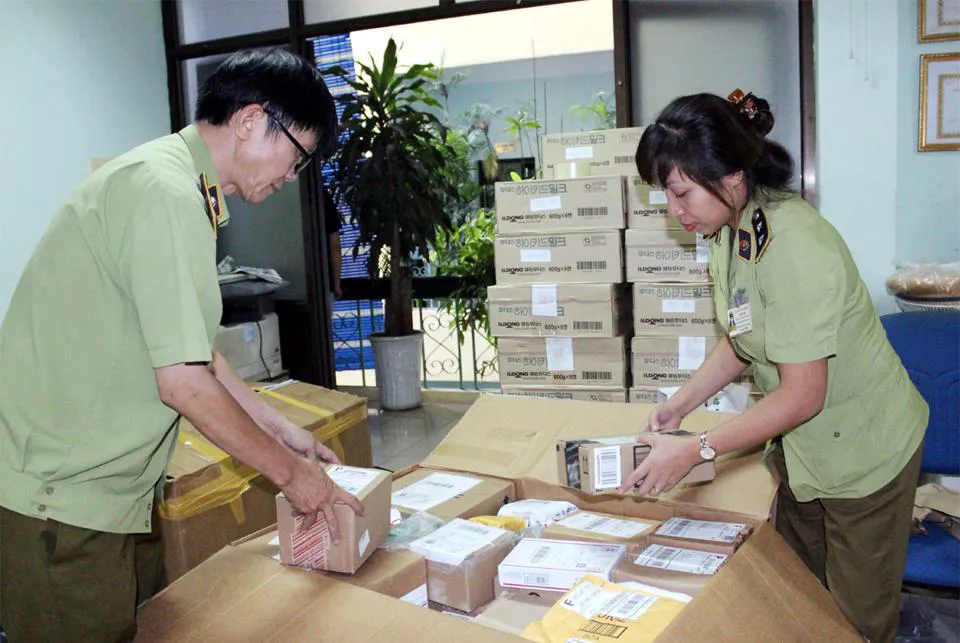Stronger regulations needed to control dietary supplements
Law specialists have raised ideas to improve existing rules to better manage the advertising and sale of dietary supplements and protect the interests and health of consumers.
There should be stricter solutions to better manage the development of the dietary supplement market to protect the health and interest of consumers, according to specialists.
| Unlicensed dietary supplements were seized at a store on Hanoi's Pham Hung Road. Photo: Chien Cong |
The Vietnam Food Administration (VFA) under the Ministry of Health has recently flagged the sales of some dietary supplements for breaking the rules on food safety and false advertising, which could lead to health issues among consumers.
The dietary supplement has become a good option for Vietnamese consumers who seek alternatives to improve physical conditions. However, the quality and effects of such products have remained doubtful.
Several dietary supplements have been advertised as high-quality drugs using the endorsement of celebrities or medical specialists to increase the credibility of their ads.
For instance, Great Height is a product that provides calcium, and vitamins D3 and K2 to support the bone structure, and assist height development. But in some commercials and advertisements, the product is popularized as a drug that could instantly boost height.
The Ministry of Health has had some regulations that stipulate administrative penalties on violations of food safety, production and sale of dietary supplements, and advertising and trading of counterfeits to protect the interests and health of consumers.
The existing rules are tight, but some flaws allow producers and sellers to take advantage of, lawyer Nguyen Ngoc Hung, Director of Ket Noi (Connection) Law Firm, told The Hanoi Times.
The rules are hard on TV commercials, but those on the management of advertisements on social networks and e-commerce platforms have not been well-written, allowing the sales of uncertified products, he said.
Some producers even take advantage of the image of medical professionals, and military and police officers to build trust and sell sub-standard products to the market, thus damaging the health of consumers, he said.
Recent penalties for violations in the dietary supplement trade are not strict enough, as the products are highly profitable and sellers are willing to trade customers' health for profits, Hung added.
Therefore, government agencies should continue to improve the legal framework for dietary supplements, impose harsher punishments with higher penalties, prosecute sellers according to the criminal code and seize the profits made from the illegal sale of dietary supplements, the lawyer said.
“Consumers must also give a hand to settle the issue as they have to detect and report violations to the authorities, to protect their legitimate interests and stop wrongdoings,” Hung said.











